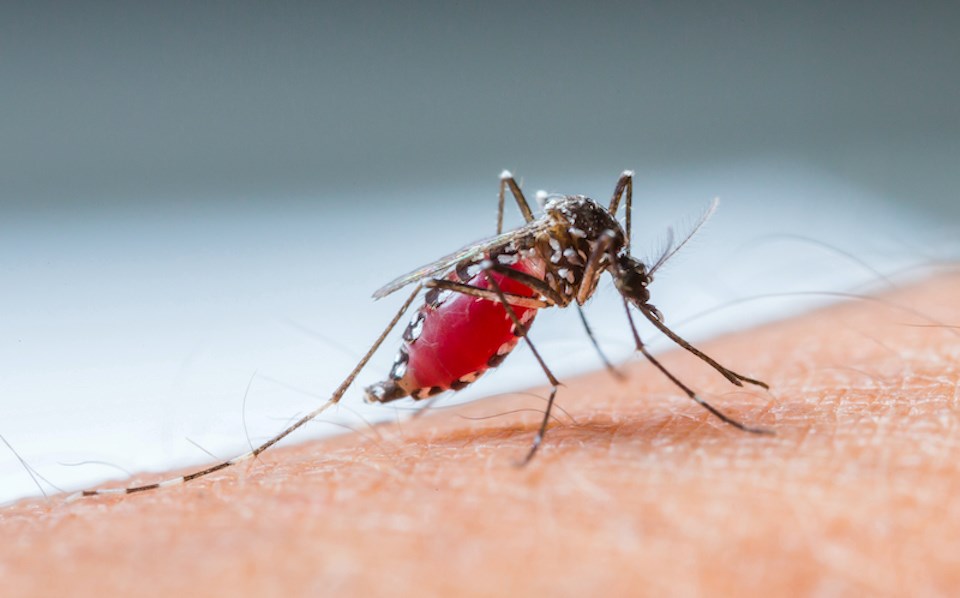Metro Vancouverites have likely avoided a mosquito "boom" this year.
Carl Lowenberger, Professor Emeritus of Entomology and Parasitology at Simon Fraser University (SFU), says that currently there are some mosquitoes in pockets across the Lower Mainland but no massive populations.
"It's not like in previous years after a big snow melt or significant rainfall," he tells V.I.A.
While June saw average precipitation in the region, the province has battled drought conditions for months. B.C.'s snowpack levels are significantly diminished in most parts of the province.
While several mosquito species buzz around the Lower Mainland, not all have the same egg-laying preferences.
Mosquitoes from the culex genus, also known as typical mosquitoes, are considered "year-round" mosquitoes.
Another species from the genus aedes lays its eggs at the top of depressions, such as banks normally filled with snow or on the banks of rivers. If there is substantial rainfall or a major melt from a snowpack, the eggs will hatch when the water reaches the line where the eggs were laid, Lowenberger explains.
Hot Metro Â鶹´«Ã½Ó³»weather could trigger a "burst" of mosquito activity
Since the Lower Mainland didn't receive significant rainfall this year - and the snowpack is depleted - the upcoming heat isn't likely to trigger a mass-hatching event.
"If we have a whole bunch of rain and heat we could have a boom but it isn't looking like it. But we could have a burst," he noted.
Lowenberger says some people have complained about mosquitoes in some areas but others say numbers are low. A few days of rain have allowed some eggs to hatch but local populations are much lower than in other parts of Canada.
Mosquitoes mature more quickly in the heat but require rain to lay their eggs. In years with low rainfall, the insects must choose places that always have standing water, such as ponds, to lay their eggs. These areas have more predators, including frogs and dragonfly larvae, than other places that collect water during heavy rainfall, such as puddles, bird baths, and other breeding sites with standing water.
Since the water in most places is around 10 C, the life cycle moves dramatically slower. In the summer, when temperatures rise to 25 C and up, the life cycle speeds up and repeats much faster.
How can I help control mosquito populations and protect myself?
You can help control mosquito populations by preventing them from breeding or preventing the larvae from developing into adults. You do this by:
- removing standing water which provides breeding sites; and,
- controlling the larvae with an approved product.
You can also take the following steps to protect yourself:
- Use a fly swatter to kill mosquitoes in the home
- Use an approved mosquito repellent
- Wear loose clothes made of tightly woven materials that keep mosquitoes away from your skin, such as nylon or polyester
- Use mosquito netting when sleeping outdoors or in an unscreened structure (also use netting to protect infants when outdoors)
- Wear long pants and sleeves as well as shoes and socks (you should do this if you're going to be outside when mosquitoes are most active)
- Fix or replace old and torn screens in doors, windows and vents (inspect all other possible access points into your home and fix as needed).



